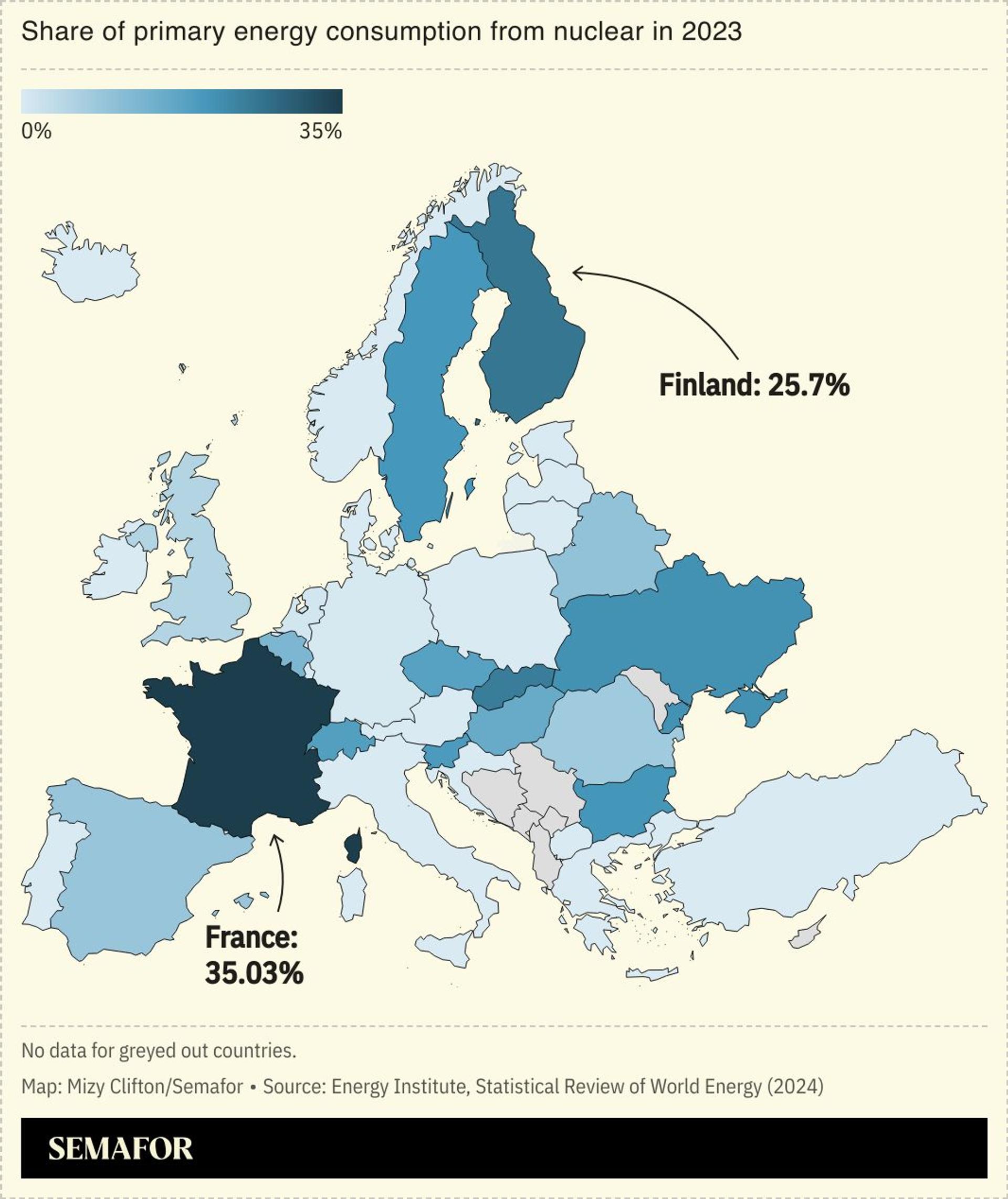The News
European Union ministers agreed to support nuclear energy as part of the fight against climate change ahead of next month’s COP29 summit, a marked shift on a power source that has long divided the bloc.
The Netherlands, France, and some eastern European nations called for more “institutional support” for nuclear energy, as well as for the technology to be integrated into new EU energy regulations. However, Germany, Austria, and Denmark expressed concerns that resources could be funneled away from renewable energy technology.

SIGNALS
Europe is changing its mind about nuclear
Nuclear energy has long been the subject of a deep divide in EU politics — France relies on its fleet of reactors for electricity, while Germany has moved away from them. A change of heart on nuclear power, which lost support following the 2011 Japanese nuclear disaster, is a “sign of atomic power’s rising prominence as an energy source,” the Financial Times wrote. Some officials involved in the negotiations argued that the bloc’s nuclear discussions “distracted from wider questions” about the EU’s fossil fuel dependency. One person told the paper that the “elephant in the room” was the lack of conversation on how much the EU would contribute to fund poorer countries most affected by climate change.
Nuclear is on the up as Amazon and Google invest
Part of the change in attitudes toward nuclear energy is a sense that small modular reactors, cheaper and faster to build than traditional plants, are closer than ever to becoming a reality: This week Amazon became the latest tech company to invest in SMR startups. While renewable energy is the cheapest source of power, ‘it isn’t always ideal,’ Ars Technica wrote: Cleaner energy sources are more intermittent in their power supply, and SMRs can help states supplement a potential rise in energy demand without resorting to fossil fuels while renewable energy is more widely rolled out. Already, the European Industrial Alliance on Small Modular Reactors — a public-private platform launched by the European Commission this year — has identified nine SMR projects for its first round of development.

